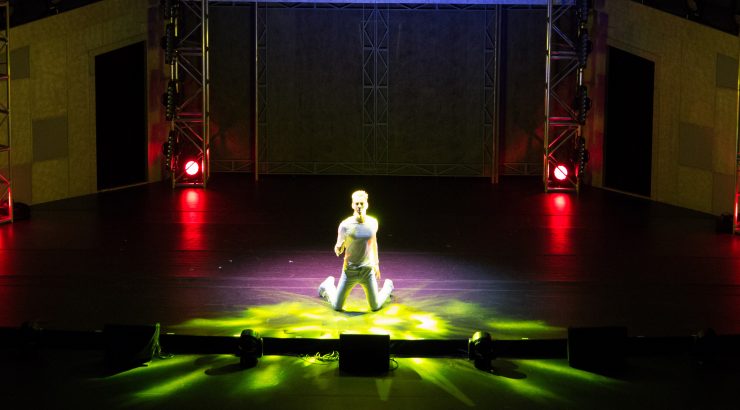
The Legend of the Pinball Wizard A Dramaturgical Look into 'The Who's Tommy'
February 24, 2017
The Who’s Tommy reaches deep and leaves no element of heartbreak unexplored in its tale of self-discovery and familial reconciliation. It is a challenging musical for many reasons; actors must infuse every moment with energy worthy not only of immortal rock stars, but also of vulnerable humans. The Pinball Wizard of The Who’s Tommy experiences the glories of rock and roll and the dangers of celebrity worship as he searches for self and home.
In 1969, when guitarist Pete Townshend’s rock album, which informed The Who’s Tommy, was released, the world of music had reached an age of great rock bands. These artists were pushing musical boundaries and taking daring risks like never before. Music of earlier decades was considered sugar-coated and mellow, while the social commentary of new acts like The Rolling Stones and The Who influenced listeners to stop and take notice of issues, and to react and rebel, as rock and roll swept the globe. This production exhibits the raw traits that make this show so appealing to many. There is no pretense, just exploration of real emotions.
With success comes celebrity, and during the 1960s and ’70s, stars were treated as untouchable gods. Grappling with his own celebrity, Townshend became an avid follower of Meher Baba, a religious leader from India who was mute and only communicated through letters or hand signals. He gained a celebrity following when he traveled to the West.1 Townshend was inspired by Baba’s journey, stating to Rolling Stone Magazine, “the process of writing was controlled by my direct involvement with Baba. On a basic working level, songs like ‘I’m Free,’ ‘Pinball Wizard’ and a couple of others are very much Baba.”2 In The Who’s Tommy, Tommy gains his celebrity status as a “Pinball Wizard” and amazes everyone at his skills despite his disabilities, gaining a cult following which ultimately leaves him as he struggles to reclaim his life as his own.
Tommy’s secrecy, seduction, and “Sensation,” coupled with interpersonal trauma, loss, and, ultimately, triumph remain relevant today because, as Townshend said, “it is life.”2 The Pinball Wizard’s journey to himself begins with acceptance and awareness of the world around him.
1 “Brief Meher Baba Biography | Meher Spiritual Center.” Brief Meher Baba Biography | Meher Spiritual Center. Web. 25 Jan. 2017.
2 Dalton, David, and Rick Sanders. “Townshend On ‘Tommy’: Behind the Who’s Rock Opera.” Rolling Stone, 12 July 1969. Web. 25 Jan. 2017.Photo: Dale Dudeck

